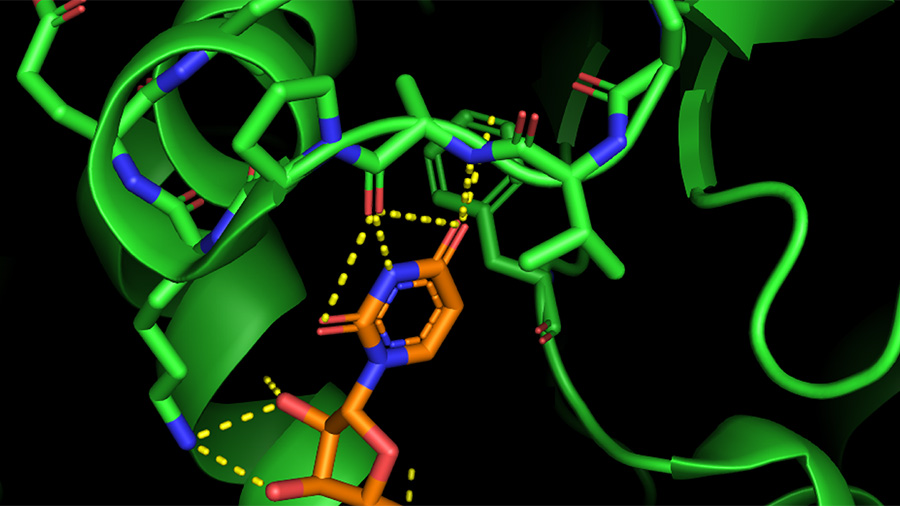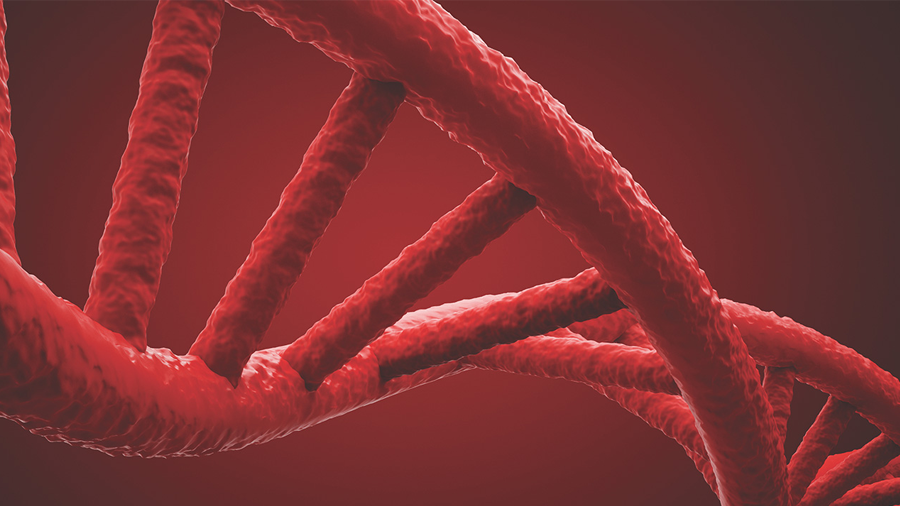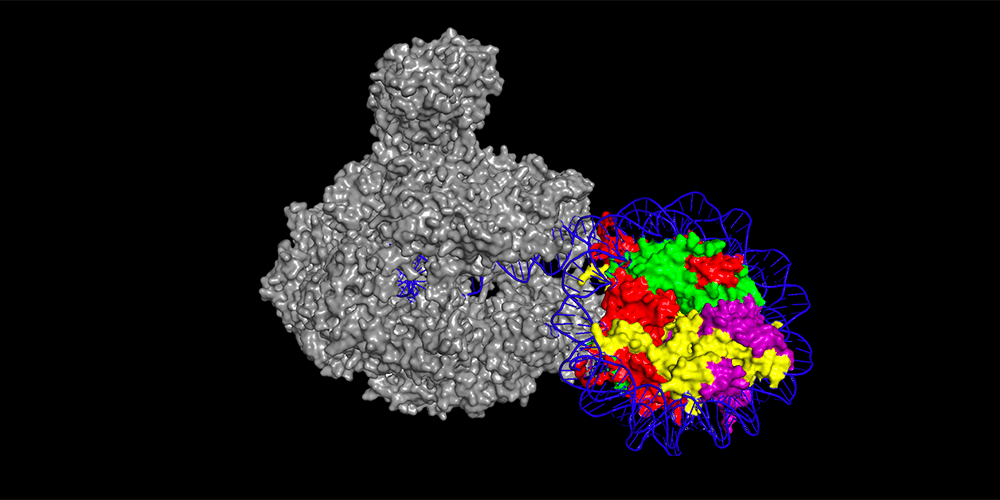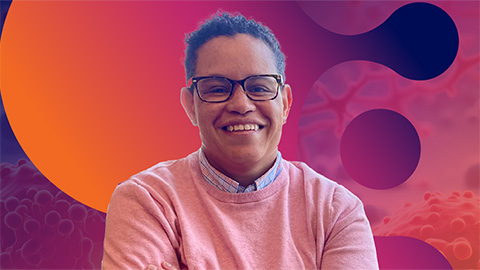Calendar of events, awards and opportunities
Every week, we update this list with new meetings, awards, scholarships and events to help you advance your career. If you’d like us to feature something that you’re offering to the bioscience community, email us with the subject line “For calendar.” ASBMB members’ offerings take priority, and we do not promote products/services. Learn how to advertise in ASBMB Today.
IUBMB relocation support for displaced trainees
The International Union of Biochemistry and Molecular Biology is offering $2,000 to graduate students and postdocs displaced from their labs as a result of natural disaster, war or "other events beyond their control that interrupt their training." The money is for travel and settling in. Learn more and spread the word to those who could use assistance.
April 9: Inaugural EFeMS Research Conference
Empowering Female Minds in STEM (EFeMS) is a nonprofit organization that supports African women in STEM. On April 9, it is hosting the inaugural EFeMS Research Conference. The virtual conference will present research from academic and industrial scientists in the form of presentations, posters and networking. The deadline for abstract submissions is March 25. Learn more.
April 14: Workshop for librarians and biochemists
For scientists, information literacy skills are more important now than ever before. Students have many possible avenues to look for information, and navigating effectively to the best source can be overwhelming if they don’t know where to start. For scientists and instructors to help students with this navigation, it is a great idea to work with a librarian. On April 14, from 1–4 p.m. Eastern, this workshop will cover forming collaborations between scientists and librarians. Register.

April 19: Registration deadline for ESCRT biology meeting
This in-person meeting will be held in Madison, Wisconsin. It'll be a unique, open, inclusive and interactive forum for the international and domestic research community working on ESCRT biology and be an effective learning environment for all participants, especially graduate students, postdocs and other researchers from diverse backgrounds. This meeting will bring together experts in disciplines as diverse as biophysics, plant biology, cell biology, biochemistry and structural biology from around the world to cover key aspects of ESCRT biology. Submit an abstract. Learn more in in this Q&A with with organizer Wes Sundquist.
April 20: Deadline to apply for WVU summer internship
The Department of Neuroscience and Center for Foundational Neuroscience Research & Education at West Virginia University will offer up to 10 summer internships of research-intensive training to diverse, competitive undergraduate students who are currently enrolled at a U.S. college or institution and have completed their second or third year. Interns participate in nine weeks of research, weekly journal clubs, a poster symposium, and activities. Benefits: research stipend of $4,000, plus a round-trip travel stipend of up to $500; a double-room in a residential hall; and access to state-of-the-art laboratories, libraries, and recreational facilities. Learn more and apply.

April 22: Nominations due for 2023 ASBMB Annual Awards
The ASBMB Annual Awards are given to outstanding professionals who have been recognized by their peers for contributions to their fields, education and diversity. The recipients will give talks about their work at the 2023 ASBMB Annual Meeting in Seattle. See eligibility criteria here.

April 26: Abstract deadline for ASBMB's O-GlcNAc meeting
This conference, to be held in person in Athens, Ga., will address the multitude of roles that the O-GlcNAc protein modification has in regulating nuclear and cytosolic proteins. It will bring together researchers from diverse fields to share their research, tools and experience in O-GlcNAc biology. The abstract deadline is April 26, and the early registration deadline is May 9. Submit an abstract. Learn more in this Q&A with organizers Gerald Hart and Lance Wells.

ASBMB Lipid Research Division Seminar Series
The ASBMB Lipid Research Division features the work of young investigators at noon Eastern on Wednesdays. If you are interested in presenting, please contact John Burke. Register once to access the whole series.
The next seminar — on April 27 — will feature Nirmalya Bag of the Indian Institute of Technology and Federico Gulluni of the University of Turin in Italy.
April 30: Survey for early-career medical educators closes
We were contacted by Caroline Mueller, assistant professor at Ohio University, about a survey for early-career medical educators. She wrote: "We hope that through this survey, we will identify the needs of early-career medical educators and develop appropriate resources for new faculty." Learn more and complete the survey by April 30.
May 4: DOE grad student award application deadline
The U.S. Department of Energy's Office of Science Graduate Student Research program is accepting applications until May 4. The program supports U.S. graduate students seeking to conduct part of their thesis research at a DOE national lab or host site with a DOE scientist. The program is open to Ph.D. students who are conducting their thesis research in targeted areas of importance to the DOE Office of Science. Learn more.

May 4: Screening of and panel discussion about film "Coded Bias"
The 2020 documentary “Coded Bias” explores biases embedded into technology. These biases affect the behaviors, outputs and consequences of countless devices, tools and digital spaces and often lead to or perpetuate inequity. Self-driving cars, facial recognition software, motion-activated appliances, job applicant screens and algorithms used for medical decision making — they’re only as good as the code that defines their functions. The film describes in chilling fashion numerous prejudicial and even dangerous outcomes caused by biases hard-wired into data-centric technologies, and it makes the case for systemic changes needed to safeguard users and hold the tech industry accountable. Interested? The ASBMB Women in Biochemistry and Molecular Biology Committee is hosting a screening and virtual panel discussion at 4 p.m. EDT on May 4. Committee member Meghna Gupta will moderate, and Jeff Kapler and Marina Holz will be panelists. The link to access the film will be sent to all registered attendees two weeks prior to the event. (The film also can be streamed on Netflix.) Register.

May 6: Oral abstract deadline for gene expression meeting
This in-person meeting in Kansas City, Mo., will showcase the most recent insights into the cis-regulatory code, how cis-regulatory information is read out by transcription factors, signaling pathways and other proteins, how cellular diversity is created during development and how we can study this problem using cutting-edge genomics technology and computational methods. The meeting will simultaneously examine the problem from an evolutionary perspective: how cis-regulatory elements evolve, how regulatory variation affects gene expression and phenotypes, how these changes have shaped development and parallel evolution, and how noise affects regulatory circuits and their evolution. The abstract deadline for those who'd like to be considered for talks is May 6. The abstract deadline for poster presenters and the registration deadline is May 25. Submit an abstract. Learn more in this Q&A with two of the organizers.

May 16: Abstracts due for ASBMB mass spec meeting
This five-day conference will be held Aug. 14–18 in person in Cambridge, Massachusetts, and online. It will be an international forum for discussion of the remarkable advances in cell and human protein biology revealed by ever-more-innovative and powerful mass spectrometric technologies. The conference will juxtapose sessions about methodological advances with sessions about the roles those advances play in solving problems and seizing opportunities to understand the composition, dynamics and function of cellular machinery in numerous biological contexts. In addition to celebrating these successes, we also intend to articulate urgent, unmet needs and unsolved problems that will drive the field in the future. Registration and abstract submission begins Nov. 1. Abstracts are due May 16. Learn more.
June 1: Deadline to apply for ASBMB diversity scholarship
The Marion B. Sewer Distinguished Scholarship for Undergraduates offers financial support to students who demonstrate an interest in the fields of biochemistry and molecular biology and enhance the diversity of science. Students whose social, educational or economic background adds to the diversity of the biomedical workforce or who show commitment to enhancing academic success of underrepresented students are eligible. The scholarship provides up to $2,000 toward undergraduate tuition costs for one academic year and can be applied to fall or spring tuition of the year following scholarship award notification. Up to ten scholarships will be awarded each academic year. Applications by individuals from underrepresented groups are encouraged, although all qualified applicants will be considered without regard to race, gender, color, ethnicity or national origin. Apply.
June 16: Symposium on structural biology
The Oklahoma Cobre in Structural Biology at the University of Oklahoma is hosting its 10th annual structural biology symposium on June 16. Confirmed speakers include Hao Wu of Harvard University, Breann Brown of Vanderbilt University School of Medicine, Lorena Saelices of University of Texas Southwestern Medical Center, Satish Nair of the University of Illinois Urbana-Champaign and Erica Ollman Saphire of the La Jolla Institute for Immunology. Check here for details and to register.
July 10: Deadline for papers about open science policies
The Journal of Science Policy & Governance, the United Nations Educational, Scientific and Cultural Organization and the Major Group for Children and Youth announced in February a call for papers for a special issue on "open science policies as an accelerator for achieving the sustainable development goals." The deadline for submissions is July 10. To help authors prepare their submissions, the group will be hosting a series of webinars (April 8 & 29, May 20, and June 10) and a science policy paper-writing workshop (March 26–27). Read the call for submissions and learn more about the events.
July 15: Deadline to apply for Colorado PRIDE–AGOLD program
Head to beautiful Denver, Colorado, for a summer experience as a PRIDE (Programs to Increase Diversity Among Individuals Engaged in Health-Related Research) scholar. PRIDE is an initiative of the National Heart, Lung and Blood Institute that trains junior faculty from underrepresented backgrounds and/or with disabilities to advance their scientific careers and make them more competitive for external research funding. The University of Colorado PRIDE (led by Sonia C. Flores, who also leads the ASBMB Minority Affairs Committee) is one of nine national PRIDE sites. Its focus is on the "impact of ancestry and gender on omics of lung and cardiovascular diseases" (which is why it's called PRIDE–AGOLD). The program consists of two consecutive summer institutes (two and one week, respectively) that offer comprehensive formal instruction on multi-omics, data sciences and bioinformatics, with an emphasis on interpretations based on ancestry and/or gender; career development and grant-writing tools; pairing with expert mentors; and pilot funds to develop a small research project. Learn more.

July 14: Oral abstracts due for transcriptional regulation meeting
This in-person meeting will be held Sept. 29 through Oct. 2 in Snowbird, Utah. Sessions will cover recent advances and new technologies in RNA polymerase II regulation, including the contributions of non-coding RNAs, enhancers and promoters, chromatin structure and post-translational modifications, molecular condensates, and other factors that regulate gene expression. Patrick Cramer of the Max Planck Institute will present the keynote address on the structure and function of transcription regulatory complexes. The deadline for oral presentation abstracts is July 14. The deadline for poster presentation abstracts is Aug. 18. Learn more.

Aug. 2: Abstracts due for epigenetic regulation and genome stability meeting
Most meetings on epigenetics and chromatin focus on transcription, while most meetings on genome integrity include little attention to epigenetics and chromatin. This conference in Seattle will bridge this gap to link researchers who are interested in epigenetic regulations and chromatin with those who are interested in genome integrity. The oral and poster abstract deadline and early registration deadline is Aug. 2. The regular registration deadline is Aug. 29. Learn more..

Call for virtual scientific event proposals
The ASBMB provides members with a virtual platform to share scientific research and accomplishments and to discuss emerging topics and technologies with the BMB community.
The ASBMB will manage the technical aspects, market the event to tens of thousands of contacts and present the digital event live to a remote audience. Additional tools such as polling, Q&A, breakout rooms and post event Twitter chats may be used to facilitate maximum engagement.
Seminars are typically one to two hours long. A workshop or conference might be longer and even span several days.
Prospective organizers may submit proposals at any time. Decisions are usually made within four to six weeks.

Take over the JLR Twitter account
If you are a graduate student, postdoc or early-career investigator interested in hosting a #LipidTakeover, fill out this application. You can spend a day tweeting from the Journal of Lipid Research's account (@JLipidRes) about your favorite lipids and your work.
Enjoy reading ASBMB Today?
Become a member to receive the print edition four times a year and the digital edition monthly.
Learn moreFeatured jobs
from the ASBMB career center
Get the latest from ASBMB Today
Enter your email address, and we’ll send you a weekly email with recent articles, interviews and more.
Latest in Careers
Careers highlights or most popular articles

Upcoming opportunities
Join us Feb. 5! The monthly ASBMB Transcription Webinars aim to facilitate knowledge exchange and collaboration among researchers in the fields of transcription, chromatin and epigenetics.

Life in four dimensions: When biology outpaces the brain
Nobel laureate Eric Betzig will discuss his research on information transfer in biology from proteins to organisms at the 2026 ASBMB Annual Meeting.

Redefining excellence to drive equity and innovation
Donita Brady will receive the ASBMB Ruth Kirschstein Award for Maximizing Access in Science at the ASBMB Annual Meeting, March 7–10, just outside of Washington, D.C.

Upcoming opportunities
Calling all biochemistry and molecular biology educators! Share your teaching experiences and insights in ASBMB Today’s essay series. Submit your essay or pitch by Jan. 15, 2026.

Mapping proteins, one side chain at a time
Roland Dunbrack Jr. will receive the ASBMB DeLano Award for Computational Biosciences at the ASBMB Annual Meeting, March 7–10, just outside of Washington, D.C.

Exploring the link between lipids and longevity
Meng Wang will present her work on metabolism and aging at the ASBMB Annual Meeting, March 7-10, just outside of Washington, D.C.
